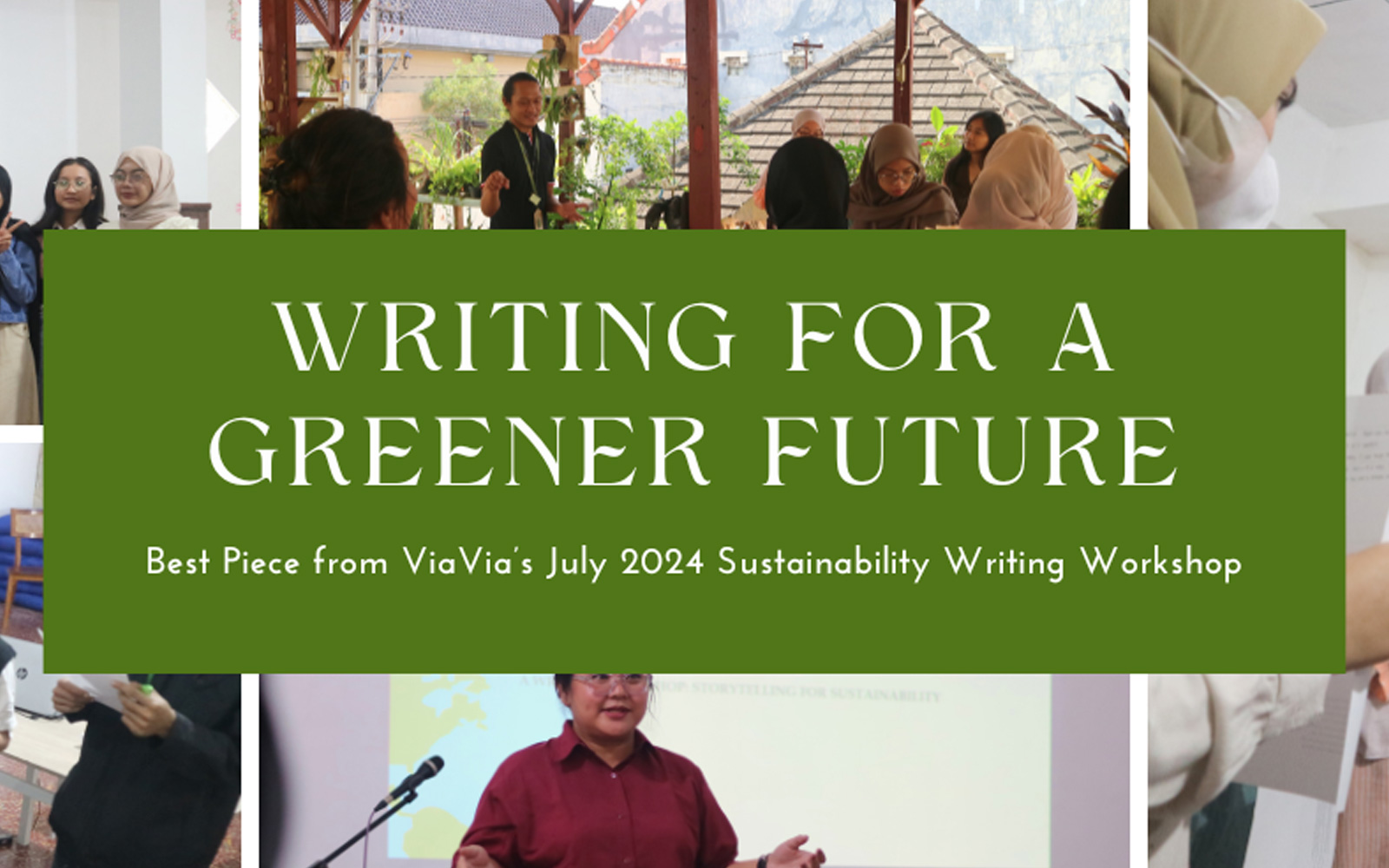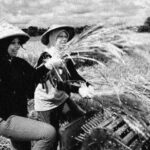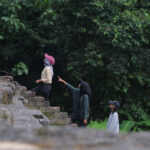At ViaVia, we believe that writing can open our eyes to important issues, like sustainability. In our past workshop on June 22, participants came together with a shared passion for becoming voices for nature through the art of storytelling. We were lucky to have Ines, the founder of Space English, lead the workshop with her exceptional storytelling skills, guiding participants in expressing their thoughts and ideas. Additionally, Anggit, our Sustainability Manager at ViaVia Tour & Travel Jogja, shared insights into our journey toward sustainable tourism, aiming to inspire participants to reflect on their own impact on the planet.
In this spirit, Putri’s piece stood out, highlighting the environmental damage caused by fast fashion and how our consumer habits play a part. Through her creative narrative, she reminds us to “listen to our wardrobes” and reconsider the impact of overconsumption, which contributes to climate change, and pollution.
We’re excited to share her thoughtful writing, which calls for a shift toward more conscious, sustainable choices.
Unsustainable Lifestyle: Why Fast Fashion Is Linked to Ecological and Labor Issues
By Ika Putri Novita Wati
The other day, I was tearing my bedroom apart looking for a green shirt, that specific one, I thought I still have. It turned out I couldn’t find it so I had this thought of ordering a new one from an online shop. There are so many brands with affordable prices, even rather cheap, that I can choose from, like Shein, Primark, H&M, Mango, Uniqlo, Zara and so on. But then, I had a close look at my wardrobe and I got something. Have you ever thoroughly checked your wardrobe before purchasing new clothes and imagined what if it could talk to you? What would it say? “Hi, I’m your wardrobe. You have been choking me with all of these clothes you barely wear. Give me some space to breathe, please!”, said wardrobe. “You can’t even take one shirt or pants without making a mess. Instead of buying new ones, consider clearing me up first.”, it added. Maybe we should start to listen to our wardrobes.
We are now living in an era where technology is advancing at an unprecedented rate. Social media has been used as a marketing tool to make us, consumers, believe that we have to buy some things we do not need. The rise of influencers in social media also plays a big role in shaping consumer’s lifestyles. Somehow, they have a strong hold of consumers and show the way to consumerism. Besides, the “jastip” phenomenon has become a new business model in Indonesia. Jastip refers to an entrusted service through which people can buy goods, including apparel, from different cities and/or countries. With the surge of these trends, fast fashion thrives on speed.
Fast fashion refers to mass-produced and cheap clothes. Many fashion companies have their factories set up in developing countries, among others, China, India, Bangladesh, Vietnam, and our beloved country, Indonesia. They are among the largest producers of fast fashion clothing due to low-cost manufacturing capacities. Not only does the fashion industry depend on cheap materials, it also relies on cheap labor. For this reason, fast fashion is linked to climate change and labor issues.
So, what do they have to do with our people and planet? Overproduction and overconsumption lead to increasing demand for fossil fuels and growing carbon emissions which we really want to avoid in tackling climate change. We are currently experiencing one of the biggest climate challenges humans ever face including extreme weather events like prolonged drought, severe floods, record-breaking heat waves, intense wildfires, etc. Many of those are anthropogenic, in other words, caused by human actions.
Moreover, one of the main materials of clothing is cotton which is a water-intensive crop. Many waterways, including Citarum river in West Java, Indonesia, are heavily polluted with toxic chemicals from the dye washed out by textile industries resulting in biodiversity loss and life-changing disabilities in children. Citarum river is even awarded as the most polluted river in the world. Further downstream, people are dependent on Citarum’s water to irrigate the rice paddy fields. People’s lives are at stake. On top of that, increased consumption patterns have also created another environmental hazard. Million tons of textile and garment waste ends up in landfill, notably in low and middle-income countries. What about the labor issue? Workers’ basic rights are not respected such as low wages, and poor working conditions. Some fast fashion brands even exploit child labor. These practices also deepen inequalities and weaken the competitiveness of local products as people prefer cheap products from overseas, especially from China. This needs to stop now.
As we reflect on the facts mentioned earlier, it is time for us to take transformative steps to shift the world on a sustainable and resilient path. We are currently living in a changing world where every single decision we take in our lives has an impact on our society, particularly future generations, and our planet. What we can do first is to rethink the way we live and how we consume as well as make conscious choices towards a more sustainable lifestyle. What are sustainable lifestyles about? They are about minimizing environmental degradation while supporting equitable socio-economic development. Sustainable practices are contextual which means there is no “one solution fits all”. They are usually influenced by cultural habits, norms and the resources available in each region. Each individual wanting to do their part in promoting sustainable lifestyles can adapt the actions with the needs of the region where the person lives.
One alternative to fast fashion is slow fashion which is a great approach to tackle the issue, promoting quality, sustainability and ethical practices in the fashion industry. Additionally, pre-loved is the new new! Many consumers have started to understand the value of secondhand items. It’s like treasure hunting for them. Unlike before, when thrifting was considered a sign of financial troubles. Consumers have embraced a circular economy where secondhand items are given a second chance. One great example of a circular e-commerce is Vinted which is available across Europe. It thrives because many European consumers are aware of the consequences of fast fashion so they turn to second-hand fashion.
We live the same struggle; being born with the privilege of overconsumption that we have trouble getting rid of. Transitions are never easy but we can change our lifestyle. Sustainability is still within reach if we act together. As citizens and consumers, we have the power to cast a vote for the world in which we want to live. Let molting animals be a source of inspiration. Let’s shed our bad habits and molt into a sustainable society.
ViaVia are committed to fostering dialogue and action around sustainability, and we hope that this workshop has inspired participants to take their own steps toward positive change.
If you found Putri’s writing helpful, we encourage you to share it with others to spread awareness. ✨
And don’t forget to stay tuned for more insights and updates on our journey by following us on Instagram at @viaviajogja.travel.
Together, let’s amplify our voices for nature and create a brighter, more sustainable world 🌿🌏


